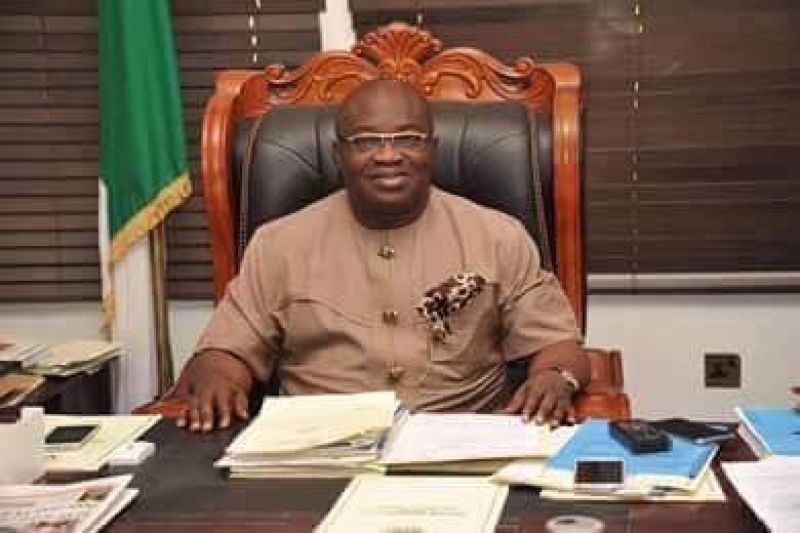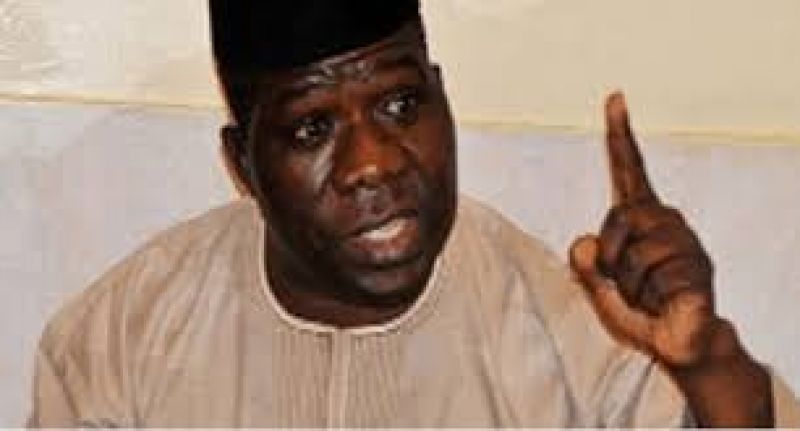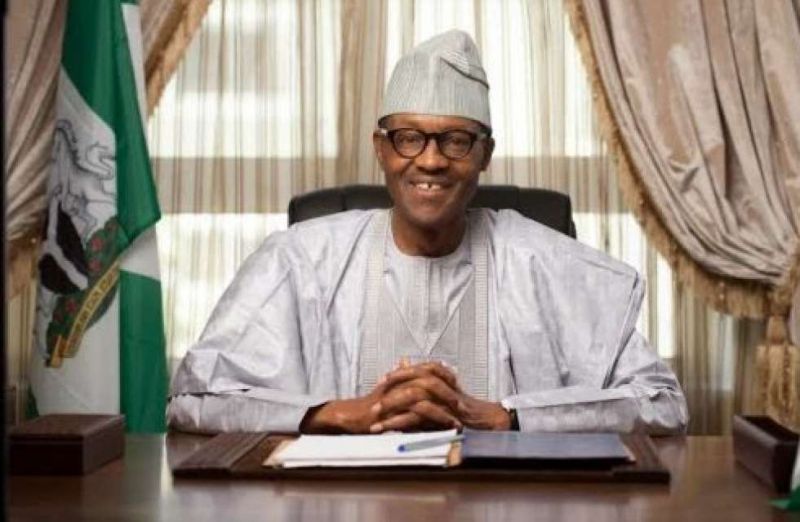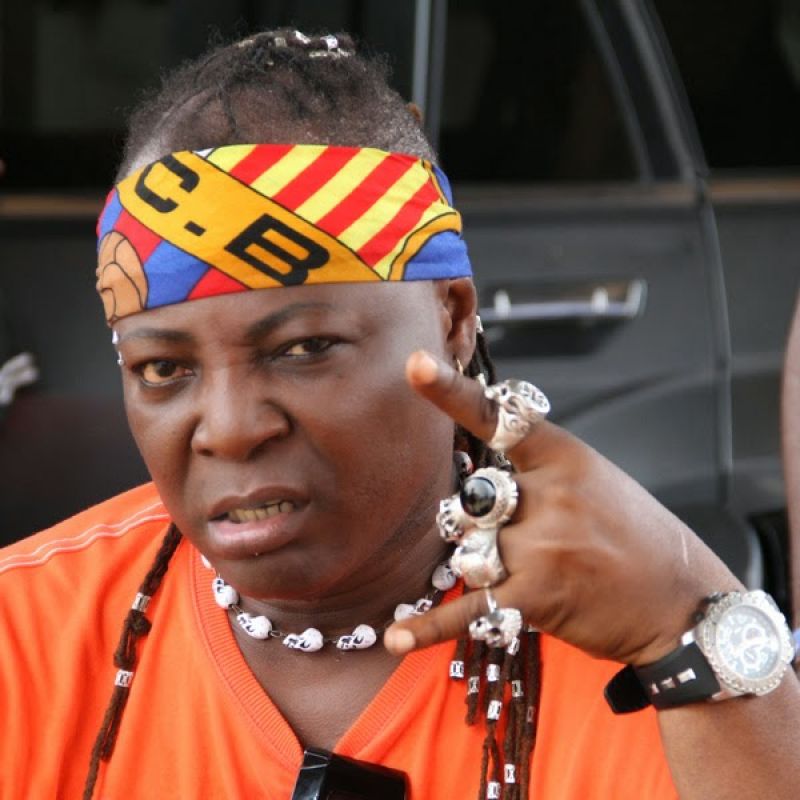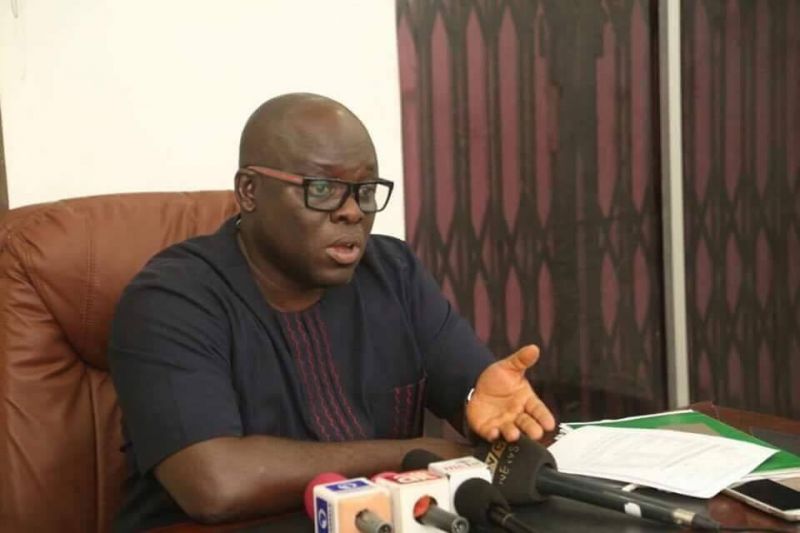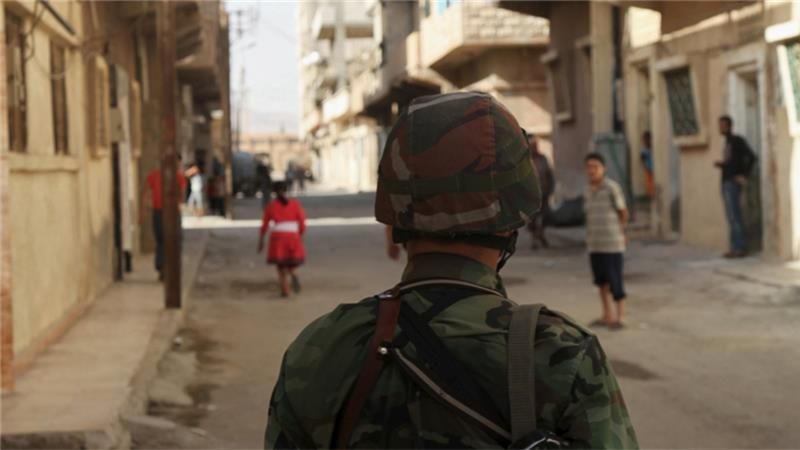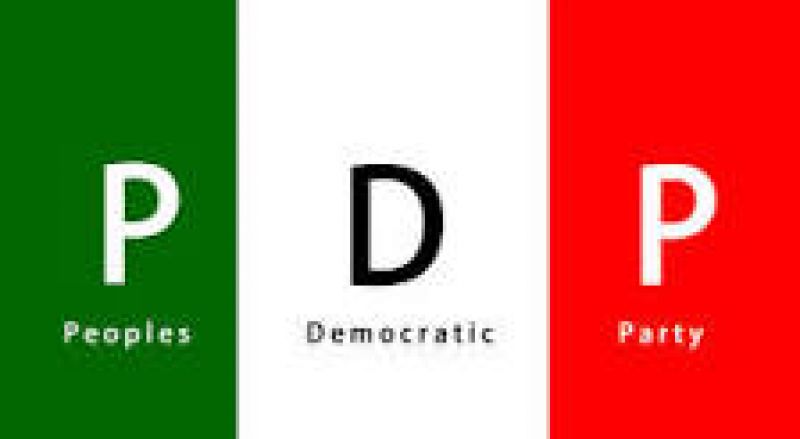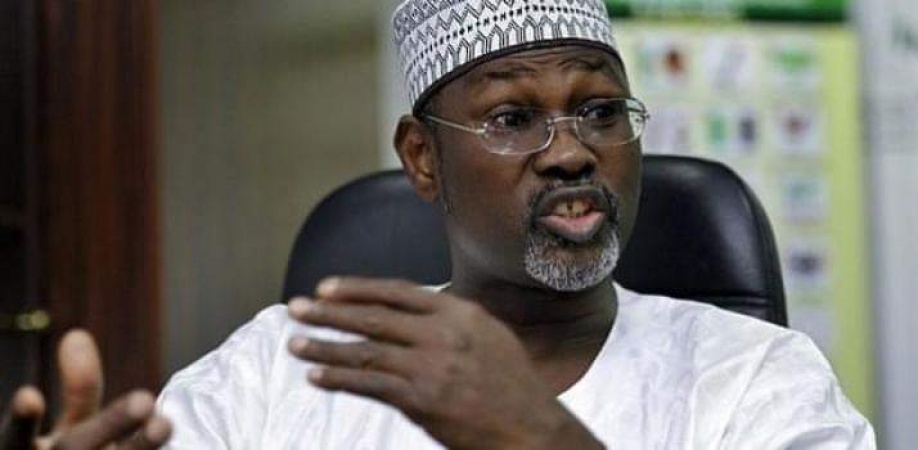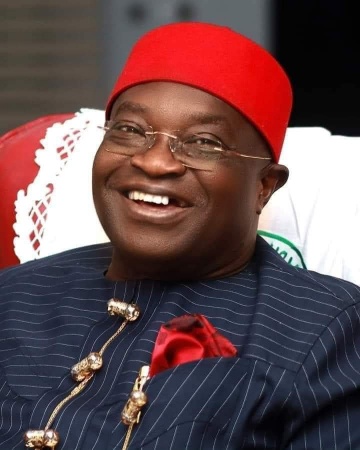Political events that shaped 2019
Posted by Sunday Ani | 5 years ago | 1,488 times

At the dawn of 2019, anxiety and fear gripped many Nigerians. They were not sure of the political fate of the country, considering the fact that the general election, which was then just two months away, had been described by different people in different ways. The situation was made worse following the gruesome killings in Benue by suspected herdsmen who attacked some communities in the state, killing many persons and destroying people’s homes and farms.
To many, the Benue incident was a signpost of how bloody the general election in February was going to be. A couple of other Nigerians became apprehensive following inflammatory political statements emanating from various quarters across the country by members of different political parties, particularly the two dominant ones – the Peoples Democratic Party (PDP) and the ruling All Progressives Congress (APC). Some people even believed that the outcome of the election, to a large extent, would determine whether Nigeria would continue to exist as one indivisible entity or it would disintegrate into two, three or more separate entities.
The view was strengthened and given bite by several prophesies by some ‘men of God.’ The so called prophets kept churning out predictions that painted a bleak picture of the country’s existence if the elections turned out in a way that was not in tandem with their predictions.
However, the election has come and gone but Nigeria is still standing tall and strong, although not without some ugly political developments.
Onnoghen vs CCT
One of the major actions that shaped 2019 political events was the move to arraign the former Chief Justice of Nigeria (CJN), Walter Onnoghen, before the Code of Conduct Tribunal (CCT) by the Code of Conduct Bureau for non-declaration of asset and possession of account in foreign currencies.
The arraignment which was to be on January 14 was later shifted to January 22 following Onnoghen’s refusal to appear before the CCT. This became a major political event as it was touted to be the first time in Nigeria’s history a sitting CJN would be so arraigned. As expected, the development attracted wild condemnation from the political class, legal community as well as the civil society organisations, but the government already had its plans well cut out; it was determined, so Onnoghen was eventually arraigned, suspended on January 25, even before the conclusion of his trial and replaced with an acting CJN. He was eventually found guilty and retired, paving the way for the confirmation of the man in acting capacity.
The Nigeria Bar Association (NBA) described the Federal Government’s action as an assault, intimidation and desecration of the judiciary. The NBA president, Paul Usoro, in a statement said: “Agencies of the executive arm of government are interested in destabilising and laying prostrate the other arms of government and in the process eliminating and destroying all voices of dissent and checks and balances.”
As Onnoghen’s case was still raging, a Federal High Court sitting in Port Harcourt on Monday, January 7, restrained the Independent National Electoral Commission (INEC) from recognising any candidate of the APC for the February 2019 election in Rivers State. The court ruled specifically that the party could not participate in the governorship, Senate, House of Representatives and House of Assembly elections.
In his ruling in the suit filed by Senator Magnus Abe, Justice Kolawole Omotosho declared that for failing to respect the law, the party must bear the consequences of its disobedience to the law. The court held that both the direct and indirect primaries conducted by the party in the state were illegal, null and void, as they were held during the pendency of the suit at the Rivers State High Court. The party was alleged to have conducted both primaries in gross disrespect of the pending suit before Justice Chinwendu Nwogu of the Rivers State High Court.
General election
On Saturday, February 23, the greatest political event of the year happened as Nigerians filed out to elect their president and members of the National Assembly; Senate and the House of Representatives. The election earlier scheduled to hold on January 16, was postponed in the early hours of the day, thereby heightening the tension that had already enveloped the entire polity.
However, on the D-day, Nigerians filed out to cast their votes but not without some losing their lives, limbs or suffering various degrees of bruises. This happened amid heavy security in some flashpoint states like Kano, Kaduna, Kwara, Adamawa, Benue, Lagos, Ogun, Anambra, Imo, Rivers and Akwa-Ibom among others. Nigerians were filled with anxiety and suspense throughout the whole process, which eventually produced the APC candidate, Muhammadu Buhari as the winner.
Again, on March 9, Nigerians went out once more to choose their state governors as well as members of the state houses of assembly. Some states witnessed widespread violence while others had peaceful process, but eventually winners as well as losers emerged.
May 29 inauguration of new government
With the general election of February 23 and March 9 concluded and winners emerged, the president and state governors took their oath of offices. President Muhammadu Buhari took the oath of office for a second time. Some state governors also took the oath of office for a second time while others were first timers.
IMN protest
The outgoing year witnessed a lot of protests by members of the Islamic group. On Wednesday, April 25, for instance, members of the Islamic Movement in Nigeria stormed the National Assembly, forcing the House of Reps to hurriedly adjourn proceedings. IMN, who were protesting the continued detention of their leader, Sheikh Ibrahim El-Zakzaky were almost approaching the second gate of the complex when members got wind of the development and quickly adjourned as they feared that there might not be enough security personnel to contain the riotous crowd.
The protest continued until El-Zakzaky and his wife were allowed to travel to India for medical treatment, with some DSS personnel accompanying them. The trip to India was cut short as El-Zakzaky rejected the services of a medical doctor provided for him and his wife, alleging that the FG wanted him dead. He was brought back without getting any medical attention and thrown back into detention alongside his wife. Ever since then, there have been some skirmishes by his followers who have sworn to continue protesting until El-Zakzaky and his wife are released.
Oshiomhole vs obaseki
The cold war raging between the former governor of Edo State and chairman of the All Progressives Congress (APC), Adams Oshiomhole and his successor, Governor Godwin Obaseki is no longer news. Oshiomhole, according to report, is doing all he can to ensure that Obaseki is not re-elected for a second term in the election that will take place next year, while Obaseki has also threatened that he is not a weakling and that he can bite. The war is yet to be over even as some stakeholders have intervened to ensure that peace is restored between them.
Scramble for National Assembly leadership
Shortly after the inauguration of the president and the state governors, the political horse-trading, alignment and re-alignment for the National Assembly leadership began in earnest. The battle for the soul of the senate was between Ahmed Lawan and Ali Ndume. Lawan was the party’s preferred choice just as Femi Gbajabiamila was chosen by the ruling party to lead the House of Representatives. However, on June 11, members of both chambers of the National Assembly filed out to elect the leadership of the upper legislative chamber and at the end of the day, Lawan defeated Ndume to emerge the Senate President while Gbajabiamila equally emerged as the Speaker of the Green Chamber.
On July 3, a senator representing Adamawa North in the Ninth Senate, Elisah Abbo, also reportedly wept openly as he apologized to the nursing mother he assaulted inside a sex toy shop in Abuja earlier in the year.
LG financial autonomy granted
Following revelation by the National Bureau of Statistics that in the last 12 years, N15.5 trillion has gone to local governments as federal allocations without anything on ground like good roads, health centres, schools, markets etc to show for it, the Nigeria Financial Intelligence Unit (NFIU) gave a marching order to local governments to start getting their allocations direct from the FG effective from June 1, 2019. The NFIU did not only ask them to withdraw directly from what the Nigeria Governors’ Forum (NGF) sees as a constitutionally approved joint account, it also promised to put in place, as part of its mandate, a tighter fiscal control to prevent diversion of local government funds by state governments.
FG’s declaration of June 12 as public holiday
Nigerians have come to know June 12, 1993, as the day the freest and most peaceful election was held in Nigeria. The election was eventually annulled by Ibrahim Babangida, the then president, denying the acclaimed winner, Moshood Abiola the chance of leading the country. The debacle that followed in 1993, popularized the day, forcing the South West states to celebrate the day. Over the years, the states in the South West have celebrated June 12, making it a work free day throughout the entire region. However, the Federal Government, in recognition of what the day has come to represent in Nigeria, recently declared June 12 a public holiday starting from this year 2019.
Adeleke and Osun guber
On Friday July 5, the nation’s apex court, Supreme Court, in a split judgement of five to two dismissed the appeal filed by the candidate of the PDP in 2018 Osun Governorship Election, Ademola Adeleke, against the election of Adegboyega Oyetola of the APC. Five justices in their majority judgement upheld the decision of the Court of Appeal which nullified the judgement of the Osun State Governorship Election Petition Tribunal on the ground that the tribunal was not properly constituted with regard to its composition as provided for in section 285 (3) of the 1999 constitution, as amended.
Edo Assembly crisis
In July, the two chambers of the National Assembly directed the Edo State governor, Godwin Obaseki to issue a fresh proclamation letter for proper inauguration of the state House of Assembly within one week. It claimed that the process leading to the June 7, 2019, inauguration was improper and a breach of global parliamentary practices. It also mandated the governor to properly inform all the 24 members of the assembly through adverts in prints and electronic media.
Some lawyers disagreed with the National Assembly in what many saw as a spillover of the political battle between Oshiomhole and Obaseki, saying that the National Assembly has no such powers to interfere in the matter unless and until there is a complete breakdown of law and order, necessitating the president to declare a state of emergency in the state.
Ruga controversy
The issue of establishing Ruga for cattle herders across the 36 states of the federation generated a lot of rumpus in the country. While Northern states were comfortable with the Federal Government’s plan, almost all the states in the South kicked against it. It got to a point where the Northern elders took a stand. They pointedly told herdsmen in the South to return home since they were not accepted in the south. Seeing where the argument was headed and the possible consequences, the president quickly countered the Northern elders’ call and urged the herdsmen to ignore them and remain where they were. But, following the stiff opposition that greeted the policy, the FG was forced to drop it or change it to what was later known as grazing reserve; another policy that is currently generating heated argument in the polity.
RevolutionNow Protest
From nowhere, the publisher of Saharareporters, an online news publication, Omoyele Sowore called on Nigerians to come out in their numbers on August 5, to protest the worsening insecurity situation in the country and other social vices. But even before the D-day, Sowore was picked up by the Department of State Services and thrown into detention. He was accused of plotting to overthrow the democratically elected government of Muhammadu Buhari. However, on August 5, activists defied heavy down pour in the Federal Capital Territory, Abuja as they converged on the office of the Human Rights Commission, Maitama, to protest the poor security situation and other social vices in the country but police were on ground to foil the protest. In some states where the protesters attempted to file out like Oyo, Osun, and Lagos, police also responded swiftly while many other states didn’t even attempt to carry out the protest due to fear of the security agents.
The issue of Sowore on November 6, generated a fresh controversy when the DSS invaded Justice Ijeoma Ojukwu’s court in a bid to re-arrest Omoyele Sowore, who was earlier granted bail the previous day. The invasion inside the hallowed chambers of a Federal High Court in Abuja saw the judge, Ojukwu, and lawyers scampering for safety.
Nigerians from all walks of life, irrespective of political leaning, cultural cum religious affiliation, as well as economic interests condemned the brazen lawlessness, saying it would only exacerbate the already bad human rights records in the country
Tribunal dismissed PDP’s petition
On September 11, the Presidential Election Petition Tribunal unanimously dismissed the petition of the PDP and its candidate, Atiku Abubakar, challenging the outcome of the February 23 presidential election for lacking in merit.
Chairman of the tribunal, Justice Muhammed Garba, held that the petitioners failed to prove the allegations raised in their petition. The tribunal, therefore, held that Buhari possessed the requisite qualifications and was eminently qualified to contest the February 23 election.
Dissatisfied with the tribunal’s verdict, Atiku and his party, the PDP, went to the Supreme Court on appeal. However, on Wednesday October 30, the Supreme Court in a unanimous judgment delivered by the CJN, Tanko Mohammed, dismissed the appeal for lacking in merit.
“We have examined all briefs and exhibits for over two weeks and we have agreed that there is no merit in this appeal.
“The appeal is hereby dismissed and reasons for our decision would be given on a date to be announced,” Mohammed said.
Office of the Vice president
The Vice President, Professor Yemi Osinbajo came under what a segment of Nigerians would refer to as an evil plot to disgrace him out of office, when he was accused of taking N90 billion from the Federal Inland Revenue Service (FIRS) to fund the 2019 election. The Vice President denied the allegation and even said he was willing to waive his immunity for proper investigation to be carried out on the matter. As he was struggling to extricate himself from the allegation, over 35 of his aides were sacked by the presidency; a move that raised suspicion as to whether the presidency was about to buy into the plot to disgrace the number two man. It was also rumoured that forces plotting his exit seriously considered giving him Onnoghen’s treatment.
Job recruitment scandal in senate
On October 16, the leadership of the Senate was enmeshed in job recruitment scandal. It was alleged that a top revenue generating agency approved the allotment of 100 recruitment slots for senators. Rather than spread the recruitment as it was done in the past, the leadership allegedly shared the slots, with some principal officers getting as much as 20 slots, even as over 100 other members of the upper legislative house were shut out of the exercise. The senate committee chairman on Federal Character, Danjuma La’ah promised that his committee would get to the root of the matter.
Bayelsa/Kogi States election
On November 16, the people of Bayelsa and Kogi States went to polls to elect their governors. As has been widely reported, both elections were bloody and violent, leading to the death of so many persons, including a PDP women leader in Kogi State. David Lyon, and Yahaya Bello, both of the APC emerged winners in Bayelsa and Kogi States respectively.
Aisha Buhari vs Mamman Daura
There has been a cold war between the wife of the president, Aisha Buhari and some close aides of her husband. But, penultimate week, the first lady exploded when he accused one of her husband’s close aides, Mamman Daura, of using one of the presidential spokesmen, Garba Shehu, to destabilize her family.
Rejection of six-year single term
As the year winds down, the House of Representatives just rejected a bill to make way for a six-year single tenure for the president and state governors.
Readers Comments
comment(s)
No comments yet. Be the first to post comment.
